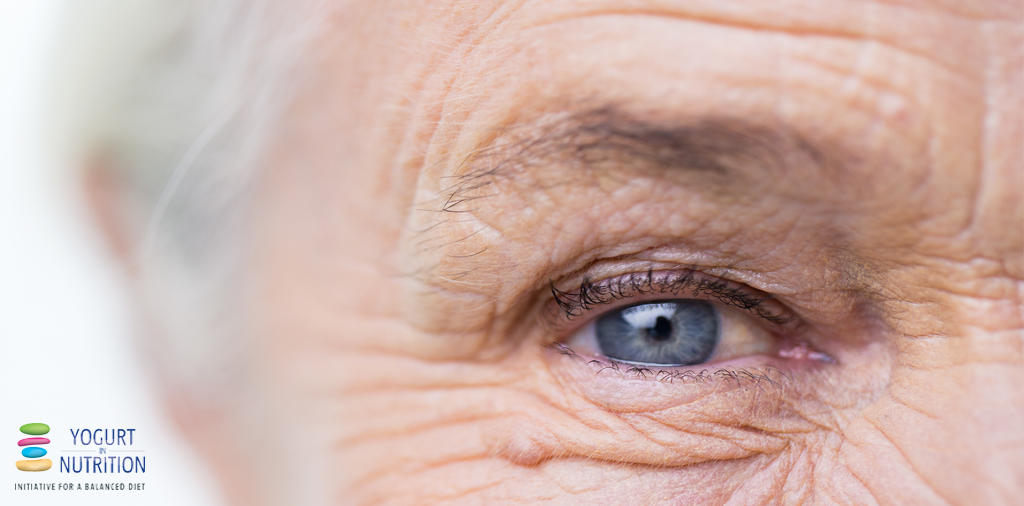We’ve all heard yogurt can be good for us, but who’d have thought that it might even help preserve our sight? This eye-opening revelation comes from the first study to look at the association between dairy products in the diet and the risk of developing a cataract, one of the world’s leading causes of visual impairment and blindness.
The protective effect seems to be unique to skimmed yogurt – it wasn’t seen with milk or any of the other dairy products investigated in this study.
The importance of this discovery is brought into sharp focus when we consider how common and debilitating cataracts are. By the time we reach 70 years old, at least four out of ten of us will have developed a cataract, clouding our vision and hindering our everyday activities.
Once a cataract has formed, the only way of treating it is with an operation to replace the cataract lens in the eye, but the surgery isn’t without risks. As is so often the case, it’s better to prevent cataracts in the first place, by tackling their underlying cause.
In fact, we don’t yet know exactly what does cause cataracts but there is some evidence that lays the blame on inflammation and oxidation – which leads to cell damage as we age. Both these processes can be affected by what we eat, and researchers have shown that certain nutrients, such as vitamin A, are associated with reduced risk of cataract.
Nutrients in yogurt may modify our risk of cataract
Yogurt and other dairy products are packed full of healthy nutrients, including calcium, magnesium, potassium, and vitamins A and B12. A high intake of yogurt has previously been shown to be protective against type 2 diabetes, which is associated with inflammation.
So it stands to reason that including dairy products in our regular diet might help keep our eyes in tip-top condition. The authors put this theory to the test, using a branch of a large-scale Spanish study assessing the effect of the Mediterranean diet on the risk of heart disease.
Over 5,800 people aged 55 to 80 years were recruited from the PREDIMED cardiovascular study. All were at risk of cardiovascular disease – for example, they had high blood pressure, or were overweight.
The participants completed a food frequency questionnaire asking them about how often they consumed various dairy products, and then were followed up for five years. During this time, 768 of them underwent cataract surgery.
Cataract risk was reduced by one-third among skimmed yogurt-eaters
The results brought good news for yogurt-consumers. Those participants who ate the most skimmed yogurt were significantly less likely to develop a cataract than those with a low intake. The risk was reduced by 38% in the medium group and by 29% in the high group.
‘The results… suggest that skimmed yogurt consumption was associated with a lower risk of cataract incidence in adult Mediterranean subjects at high cardiovascular risk’ – Camacho-Barcia L et al, 2018
None of the other dairy products studied (milk, whole yogurt, cheese, custard, cream, butter and ice cream) showed a similar protective effect although whole yogurt did show a non-significant protective trend.
Protection may be due to anti-inflammatory action or low fat content of yogurt
The authors suggest several possible ways in which skimmed yogurt might help protect against cataract. For instance, its low fat content could play a role, as fat consumption has previously been linked with a higher risk of cataract. The sugar, galactose, contained in yogurt could also have a beneficial effect by stimulating the activity of an enzyme in the intestine.
Yogurt may help quell inflammation involved in the formation of cataracts, say the authors. Indeed, an anti-inflammatory effect of probiotic yogurt has been reported.
The authors conclude that more research is needed to see clearly which of these mechanisms are at work.
‘…yogurt may play a protective role by taking part in the anti-inflammatory process’ – Camacho-Barcia L et al, 2018
Find out more: read the original article.



